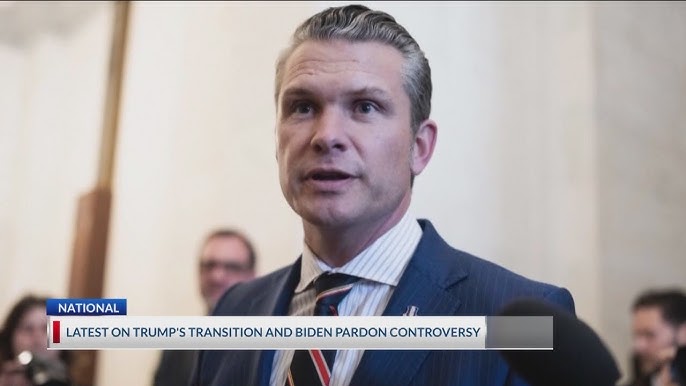With the final ballot tallied and the presidential position settled, the Democrats are caught in a whirlpool of self-critique and confusion. Their loss in the elections has left them scrambling for reasons and in such a hurry, former president Bill Clinton, played the ‘lack of timing’ card at the DealBook Summit. According to him, when Joe Biden abruptly ended his presidential run, everyone was left unprepared and unsure of the future. Hints of mismanagement and lack of foresight starkly clear in his description of the situation as ‘total chaos’.
In his attempt to explain Harris’s underwhelming performance, Clinton suggested that the Vice President didn’t get enough time to establish a strong public persona as a presidential candidate. In his words, ‘Kamala Harris was a stranger to them.’ With such statements, it’s hard not to question the Democrats’ planning and strategy. If voters don’t know their candidate, isn’t it a sign of a failed campaign?
Clinton’s commentary on the elections seems to highlight a pervasive state of confusion within the Democratic party. From casting blame on timing to implying inadequate candidate promotion, there’s an air of desperation to find explanations for their defeat. Interestingly enough, Clinton steered clear of commenting on the Democrats’ policies or strategies, seemingly overlooking the potential shortfalls there.
The former Democratic president found himself discussing another contentious move by Biden – pardoning his son Hunter. From Clinton’s perspective, Biden managed the situation poorly. He seemed to imply that going back on his initial stance weakened Biden’s credibility, but he surprisingly defended the pardon, suggesting that Hunter received differential treatment solely because of his ties to the president, rather than actual culpability.
Despite the evident bias, Clinton’s defense of Biden’s pardon seemed less about what’s right and more about justifying a questionable move. While Presidents have pardoning power, it’s quite apparent how badly Biden’s hurried pardon was perceived, indicating a significant lapse in judgement or an attempt to sweep a valid issue under the rug.
Shifting focus from national to global issues, Clinton brought up the Middle East. As a former president, he played a role in the Israeli-Palestinian peace efforts. His reminiscing of his time in office and his contribution to the peace talks during the DealBook Summit comes at a time when his own party is grappling with its failures, making one wonder if this is an attempt at distraction or genuine concern.
The former Democratic president recalled his involvement in the peace discussions in 2000, with the Palestinian leader Yasir Arafat, and Israeli Prime Minister Ehud Barak. Clinton pointed the finger at Arafat for the ultimate dissolution of the peace talks. It’s almost comical when he mentions how astonished the younger generation is at ‘what Arafat walked away from’, which is just a nice way of saying they can’t believe the absurdity of it.
In his emotional narratives about the Middle-East peace talks, Clinton said he recounts the details of the failed deal to the younger generation. Again, it seems like another convenient deflection technique – reminiscing about what ‘could have been’ rather than addressing the realities of the present and how his own party is contributing to these issues.
Clinton ended his speech at the summit with a regret-laden tone, mourning missed once-in-a-lifetime peace opportunities. He adamantly defended his stand on Arafat walking away from the deal, but it almost feels like a diversion from the problems his party faces today. Are these tales of past diplomatic failures more comforting than addressing the Democrats’ current failures?
It’s a nostalgic end indeed. Clinton, laden with emotions about his past efforts to end the Israeli-Palestinian conflict, declared his regrets. It’s almost as if he, much like the rest of the Democratic Party, is lost in a haze of past victories and failures – and seemingly cannot chart out a proper course for their future.
In all of this, there seems to be a persistent denial or ignorance from the Democratic side about any shortcomings in their policies or strategies. They seem more than willing to place blame on circumstances, individuals, or even temporal mishaps, rather than introspect and steer their strategies in a more fitting and effective direction.
Looking at Clinton’s circuitous justifications, one starts to question whether the Democrats are really up to the task. The length they’re willing to go to deflect blame or avoid introspection seems alarming. If they continue along this path, it’s not hard to see more losses in their future.
The pressing question remains, when will Democrats start addressing the actual issues instead of deflecting blame? The public doesn’t want excuses or justifications, they want actions and results. And if the Democrats can’t provide these, then their chances at success in future elections seem more like wishful thinking.
The time for lackadaisical approach is over. The Democratic party needs to take a hard look at itself and the policies it’s been pushing. Unless they’re willing to do so, their future looks uncertain.
Instead of mulling over past election disasters, they instead need to rethink their strategies, policies, and overall approach. Only then will they be able to rise from their current states of political blunder.
To sum it up, the Democratic party, with its significant leadership figures like Clinton or Biden, is yet to face the music and accept its failings. Until then, it remains in a state of bewilderment, trapped by the very ‘chaos’ it seems to blame for its electoral mishaps.


